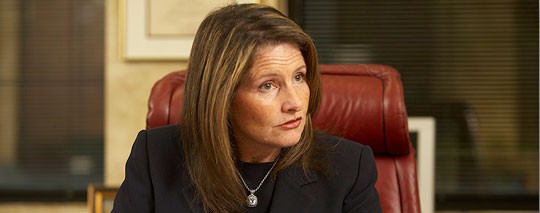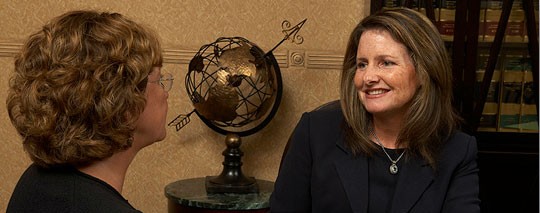The Accident Victim FAQ

- Do I really need a personal injury lawyer?
- I have a friend who is a divorce attorney. Couldn’t I just have him handle my case?
- How soon should I act?
- What steps will the Law Office of Russo & Russo take when I retain your office?
- What kind of information should I bring to the attention of Russo & Russo?
- Is there anything I shouldn’t do?
- I have heard about something called the discovery process. How does that work?
- How long will I have to wait for a settlement?
- What if the case goes to trial?
Q: Do I really need a personal injury lawyer?
A: If you have recently been injured in an accident, chances are that you simply want to move on with your life. You are probably starting to recuperate from the injuries that you have suffered, and right now, perhaps the strongest urge you feel is to simply put this part of your life behind you. As a result, you may feel that you can handle the legal matters arising out of the accident by yourself.
You must resist this temptation! Just as you would not have attempted to treat your injuries on your own, so too should you not attempt to deal with complex legal matters without first consulting legal counsel experienced in personal injury law.
The steps you take in regard to your injuries and how you conduct yourself in dealings with insurance company representatives can have far reaching and permanent consequences. Often, there is only one opportunity to handle matters in the right way. Personal Injury Attorneys Russo & Russo can work to help you maximize the award that you are entitled to and to handle the legal matters for you while you concentrate on the important business of regaining your health.
Q: I have a friend who is a divorce attorney. Couldn’t I just have him handle my case?
A: While any attorney licensed by the Florida Bar is deemed competent to handle any legal matter, the reality is that law is a widely varying field composed of many different areas of practice. Just as there are many types of doctors, each specializing in a different area of medicine, so too are there many different types of attorneys, each with an area of expertise.
St. Petersburg Personal Injury Attorney Colleen Russo is experienced in the area of personal injury law. Our office has the resources and knowledge to put you in contact with recognized medical experts who are favorably received in court and who can evaluate the nature, cause, and extent of your injuries. Colleen Russo is a former insurance defense lawyer and is familiar with the inner workings of insurance companies and the processes employed by insurance companies in evaluating claims. The Law Offices of Russo & Russo will handle your case aggressively and competently to help you get the compensation that you deserve.
A: With each passing day, your rights may be affected. Additionally, the ability of our office to investigate your case may be affected by the passage of time, repair efforts, or remedial measures. Therefore, it is important to consult with an experienced attorney as soon as you are able. If you are confined to a bed or the house as a result of your injuries, our office can arrange to consult with you via telephone or to visit you at your house or at the hospital.
Q: What steps will the Law Office of Russo & Russo take when I retain your office?
A: Our office will schedule your initial consultation as soon as possible. You should bring to this first appointment a copy of your auto insurance policy, your accident report, or driver exchange of information given at the scene, the names of all medical providers you have seen, medical bills, prescription receipts and any information you have received from the insurance company. We will discuss in detail what your rights are and what our plan of attack will be to insure a fair and quick cash settlement for you.
Q: What kind of information should I bring to the attention of Russo & Russo?
A: Generally, the more information that you can provide our office with, the better. If you have photographs, names of witnesses, accident reports, or medical records, you should by all means bring them to our office’s attention. Likewise, current clients should keep us informed if they move, change health care providers, or if their condition improves or worsens. Finally, information as to how much work you have missed, activities you can no longer perform, and physical and psychological conditions are all very important to evaluating, understanding, and handling your case.
Q: Is there anything I shouldn’t do?
A: Don’t discuss your case with anyone other then retained counsel. Even an off-hand remark may come back to haunt you later. Casual statements made to family and friends may later be used as ammunition against you by an insurance company. You should also refrain from speaking with your doctors about the value of your case or how much you think you may be entitled to under the law. Such comments, when taken out of context, can be made to seem negative and self-serving.
Additionally, you should not persist in any life activities that will aggravate or exacerbate your injuries. You should scrupulously follow the advice of your doctor and engage actively in treatment. Keep all appointments with your doctor. If you must miss an appointment, reschedule it as soon as possible. You should keep us advised of all your doctor’s recommendations and referrals for testing or treatment.
Q: I have heard about something called the discovery process. How does that work?
A: Discovery is the formal mechanism by which both sides to a civil dispute gather information relating to the case. This process begins in earnest after the defense has filed a written answer to the lawsuit. In theory, discovery is designed to provide both sides with an extensive look at all the evidence that is available and relevant to the case.
In a personal injury action, there are three main methods of discovery: interrogatories, depositions, and the subpoena duces tecum.
Interrogatories are written questions created by one party and sent to the other party. The answers to each interrogatory are made in writing, and the drafting of those answers is done by the party with assistance from his or her attorney. Interrogatories or written questions usually ask about how the accident occurred, what injuries were sustained, and other pertinent information about each party.
Depositions are question and answer proceedings that are conducted in the presence of a court reporter. The person giving a deposition is placed under oath. Lawyers for both the plaintiff and the defendant are present. All testimony that is given in a deposition is recorded, and much of it will be available for use at trial, should the need arise.
A subpoena duces tecum is a formal method for obtaining documents and other written records from persons who are not parties to the lawsuit. The subpoena operates as a compulsory method for making the person produce written documents. The attorney involved in handling your case will be responsible for drafting and sending out a subpoena duces tecum, if necessary.
Q: How long will I have to wait for a settlement?
A: Our office will begin negotiating a settlement for you after your treating doctor releases you from active medical treatment which occurs approximately six months after your accident. If we were to attempt to settle your case before this time, you may not be fully aware of the future damages or expenses that must be included in our demand for settlement.
If however, the insurance company refuses to offer a reasonable settlement amount, we will discuss whether filing a lawsuit and beginning litigation to force a more reasonable settlement is in your best interest. If litigation begins, the next most likely point in time for the parties to attempt to settle the case is at the point where a mediation is scheduled. This usually take place six to eight months after the lawsuit is filed. Mediation describes a meeting between the parties that is arbitrated by a neutral lawyer, trained and experienced in persuading both sides involved in the lawsuit to compromise their positions somewhat to settle the case. If the parties still can’t agree to a reasonable settlement at mediation, a trial will be scheduled. A trial will typically be scheduled approximately one year from the time the lawsuit is filed.
It is our experience that seventy percent of our cases will be settled within the six to eight month period when your doctor releases you and your condition is “as good as it will get.” About twenty-five percent of our cases settle after mediation. Only five percent or fewer cases will end up proceeding to trial.
Q: What if the case goes to trial?
A: If the case does go to trial (although very few cases make it to that stage), it may take approximately one year to properly prepare the case for trial.
St. Petersburg Location
Baypoint Commerce Center
Koger Building
Corner of 9th Street N. and Gandy Blvd.
9721 Executive Center Dr. North, #120
St. Petersburg, FL 33702 Map
Clearwater Location
The Summit Building
Ulmerton Road and 58th Street N.
Clearwater, Florida 33760

















